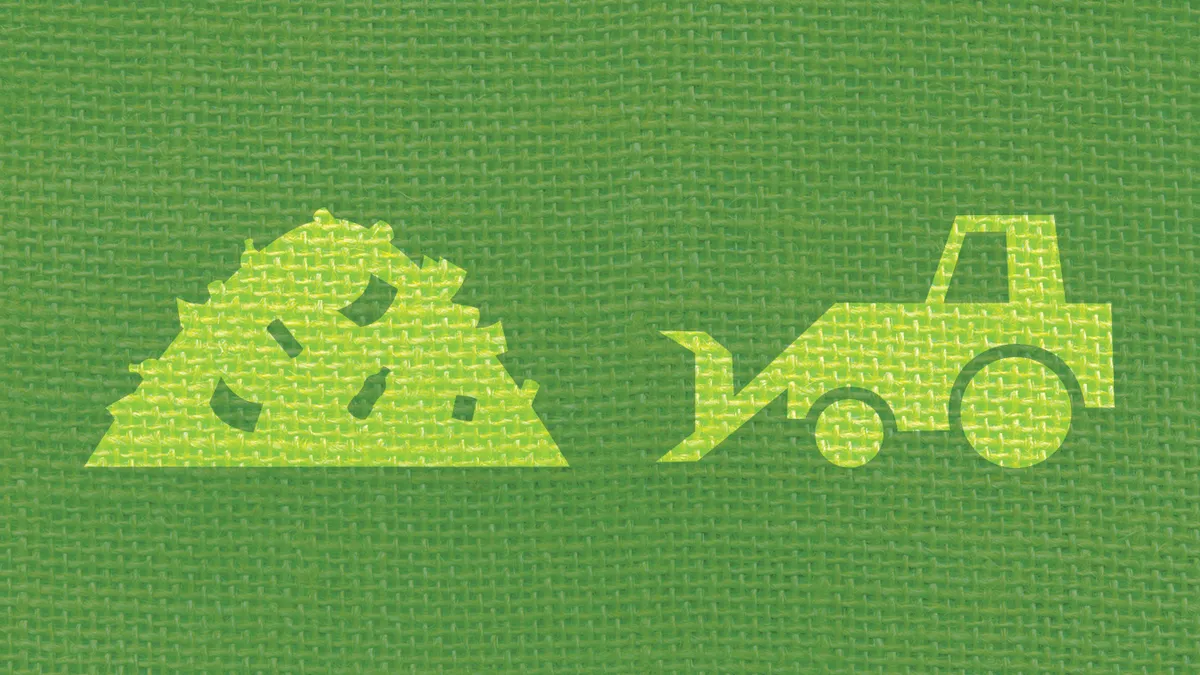Dive Brief:
- Tunnel Hill Partners, the self-described "largest integrated waste-by-rail company" in the country, has been acquired by a Macquarie Infrastructure Partners (MIP) fund through a leveraged buyout. Waste Dive has confirmed the deal through multiple sources and filings.
- A previous Sept. 2018 report from Moody's Investors Service indicates Macquarie planned to raise $350 million of new senior secured debt to fund a $590 million deal. Neither party agreed to comment as of publication, and final terms have not been disclosed.
- The Federal Trade Commission granted approval on Sept. 10, 2018. Records from Delaware's Department of State indicate that MIP IV Boomerang MergerSub, a vehicle created in July 2018 and used for the deal, officially merged with Tunnel Hill Partners, LP on Feb. 8, 2019. Ironwood Capital, previously an investor, confirmed the deal in its own release on Feb. 13.
Dive Insight:
Founded in 2008 by principals at American Infrastructure MLP Funds, Tunnel Hill has a major behind-the-scenes presence in the Northeast. The company has grown through multiple acquisitions, including the 2014 purchase of WCA Waste's Northeast assets. For the 12-month period ending in June 30, 2018, revenues were reportedly $280 million.
With a footprint spanning from Ohio to Massachusetts, Moody's described Tunnel Hill as benefiting from "a unique, difficult to replicate network of collection and transfer assets in a region that is experiencing sharply declining disposal/landfill capacity." The Connecticut-based company now owns two Subtitle D landfills, 14 transfer stations (including many with rail capability), two recycling facilities, one beneficial use burial site and the collection company City Carting.
"...[T]he margins are quite attractive because it’s primarily a disposal asset," said Hamzah Mazari, managing director at Macquarie Capital, who had no role in this deal. "We think also the fact they’re in the Northeast location-wise is strategic, because as you know there’s landfill capacity that's going to shut down in that region over the course of the next few years by 2021. And so what it will do is make these assets in the marketplace even more valuable."
Because of that limited capacity, it's now increasingly common to see Northeast waste exported west. Vermont-based Casella Waste Systems, has also taken recent steps to invest in rail transfer.
Tunnel Hill's infrastructure in the New York and Boston metro areas makes it particularly well-positioned to take advantage of more abundant landfill capacity in Ohio. As of Oct. 2018, the state's Environmental Protection Agency (EPA) estimated the company's Tunnel Hill Reclamation Landfill had 17 years of capacity remaining and Sunny Farms Landfill had 12 years. The state's regulatory climate is viewed as more favorable to landfills than some others, but Tunnel Hill hasn't been immune to regulatory pressures.
Last month, CEO John Lamanna signed an enforcement agreement with the Ohio EPA regarding odor issues at Sunny Farms. Area residents have since announced plans to sue the company over that site. This past weekend, in a local editorial, Lamanna committed to more public engagement and running Sunny Farms "in a way that serves the best interests of the community"
In its assessment of long-term prospects, Moody's raised some concerns about the company's reliance on C&D and specialty waste that might be affected by economic cycles, as well as "heavy dependence" on the rail company CSX. However, it was heartened by Tunnel Hill's unique position, projecting there could be more tuck-in deals to come.
Mazari also sees potential for Tunnel Hill's growth profile to be attractive to larger vertically-integrated companies, or possibly another private equity firm, in the future.
“My sense is that this is a business that can be added on to almost any large waste company," he said. “This asset could fit in with waste-to-energy, it could fit in with collection, it could fit in with almost any environmental business."
Macquarie's long-term plans remain unknown, but this deal can be taken as another sign of its growing stake in waste and recycling. Last year, Macquarie Infrastructure Partners also announced the acquisition of Wheelabrator for an undisclosed sum. The deal has since closed.















